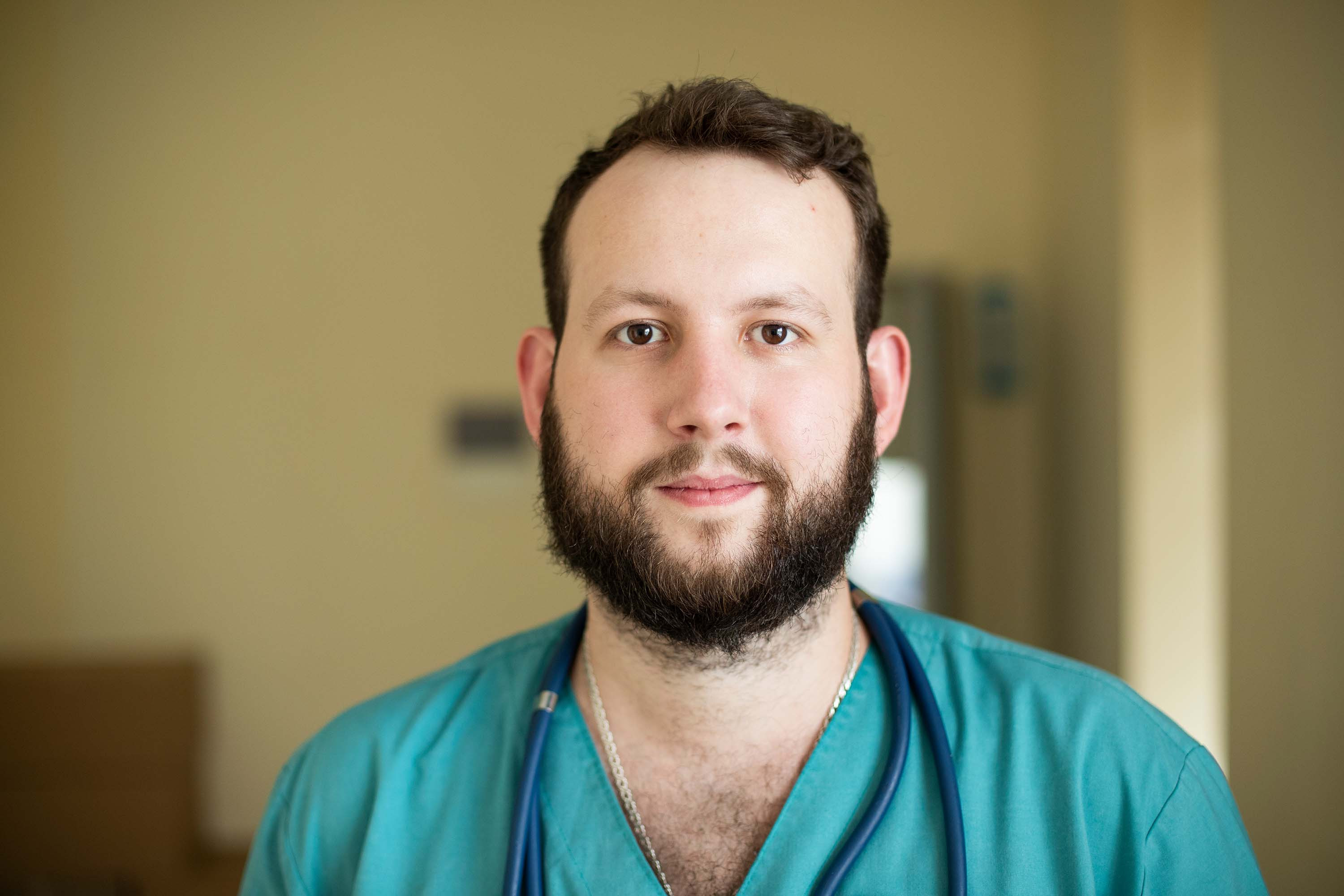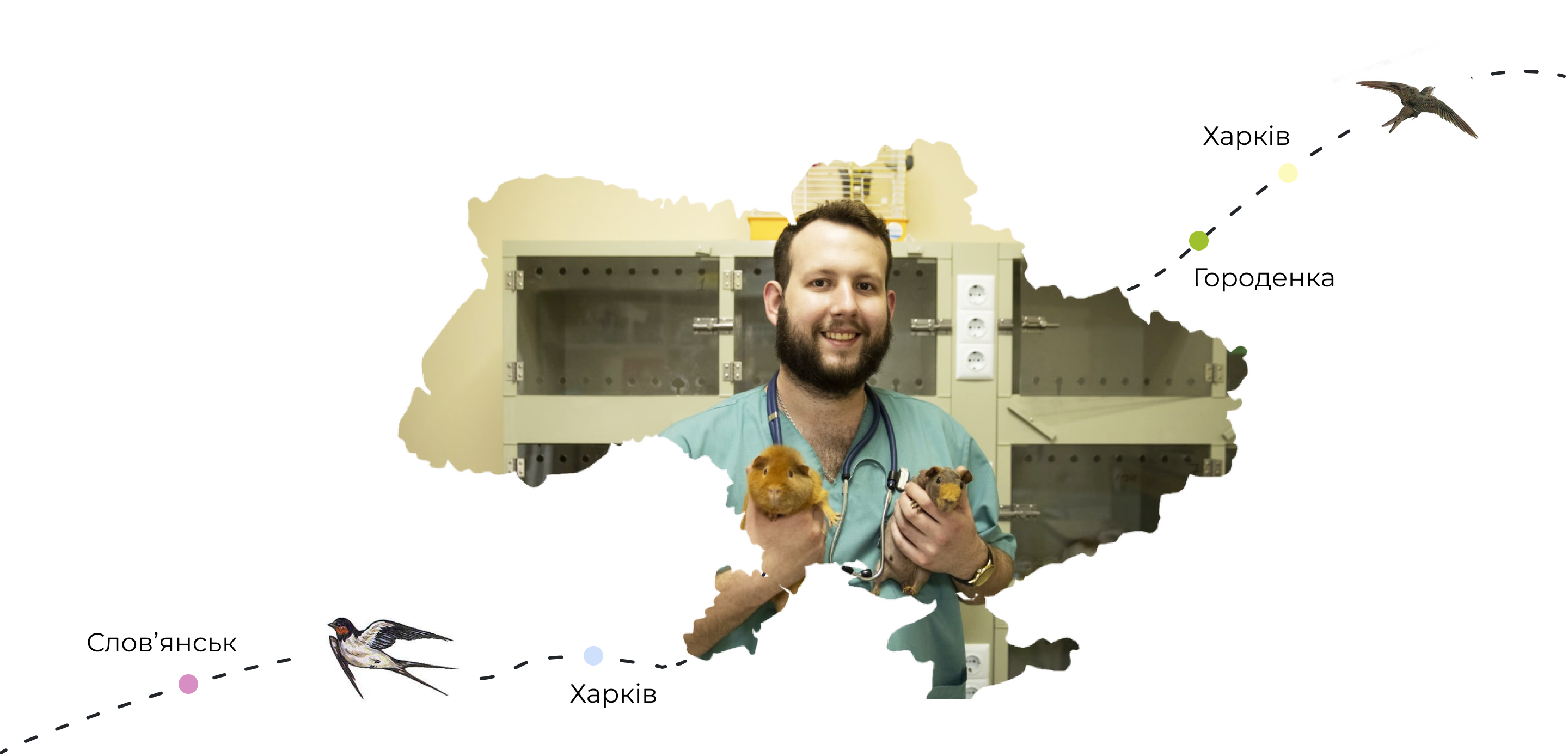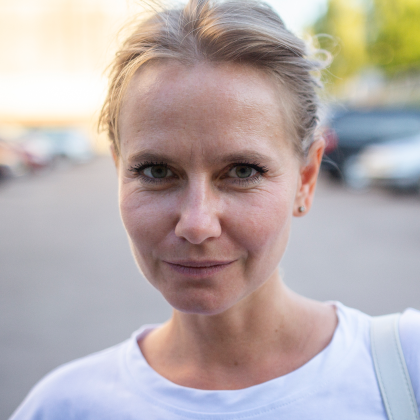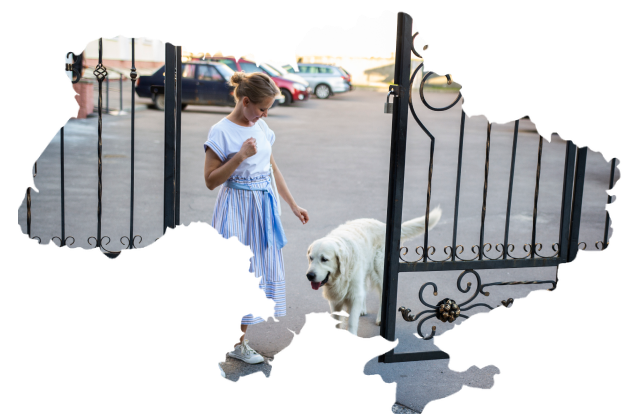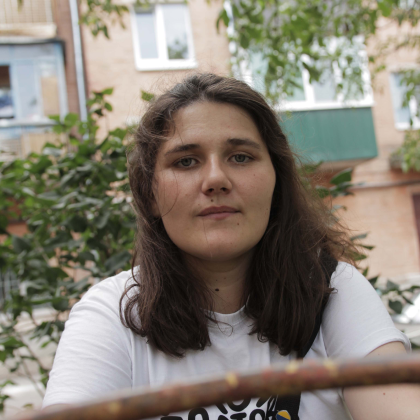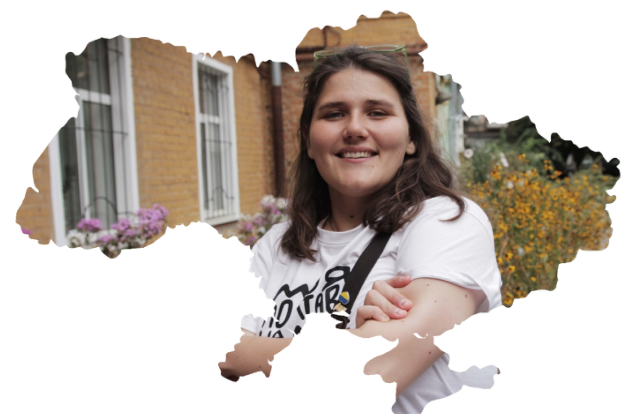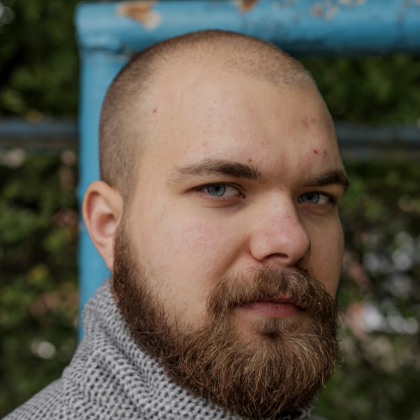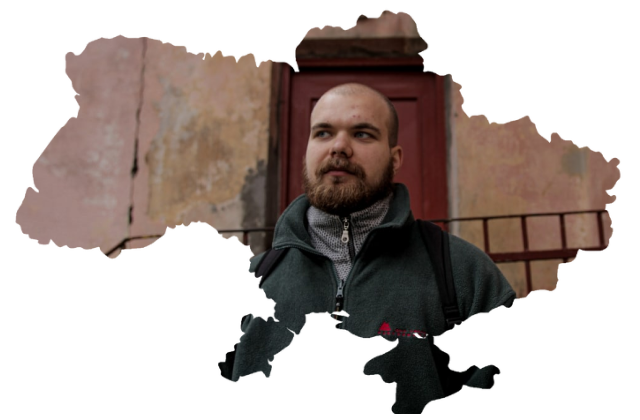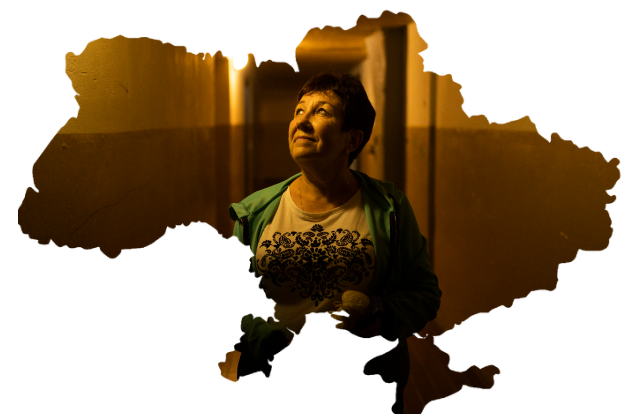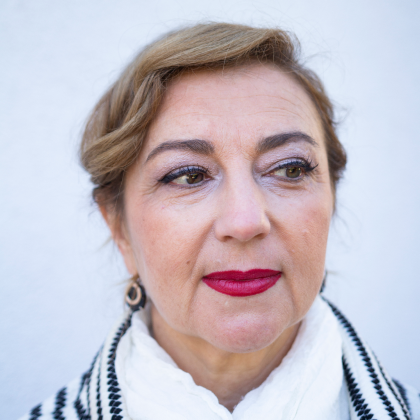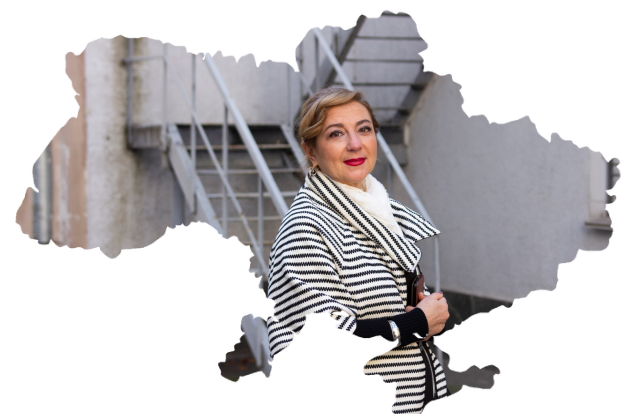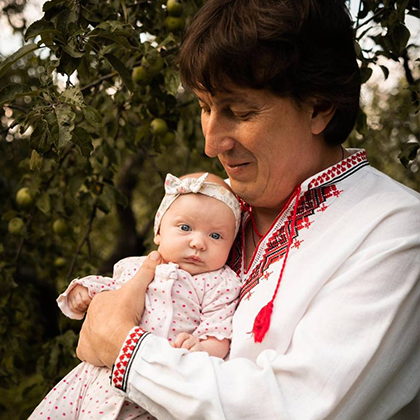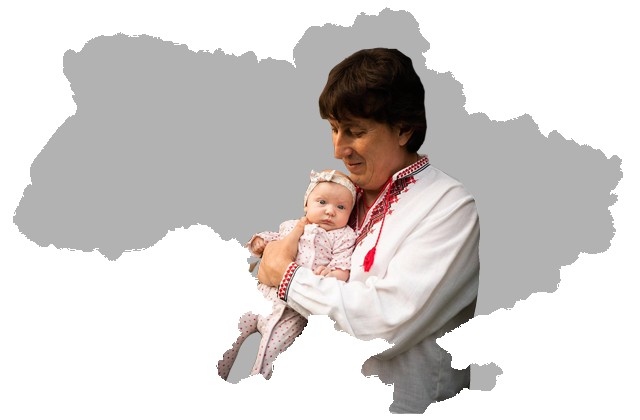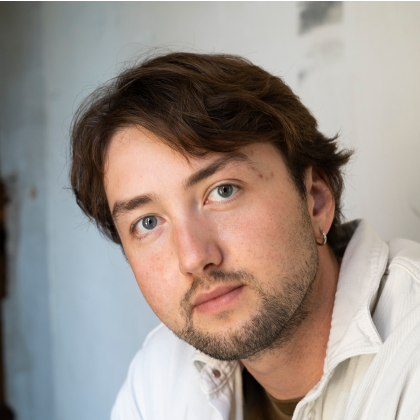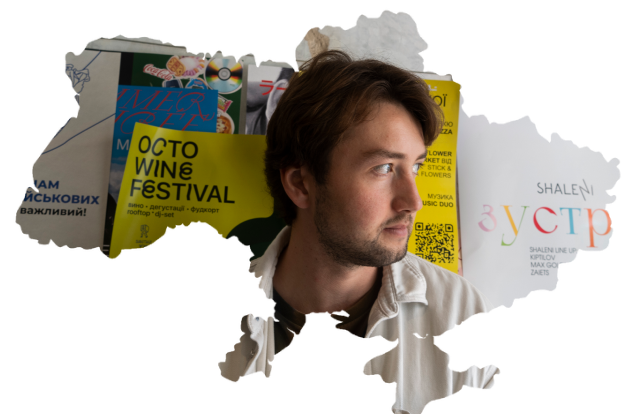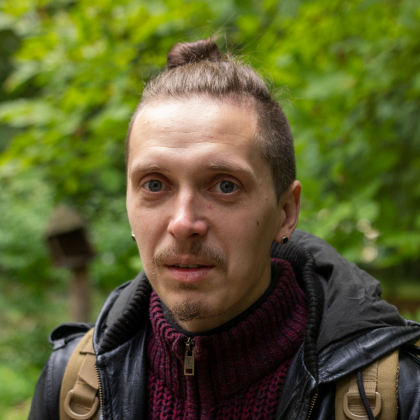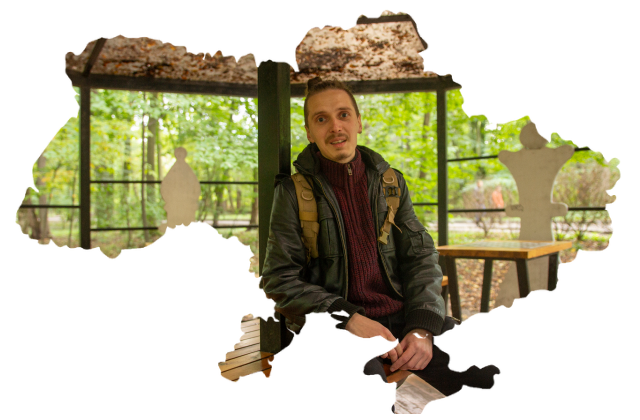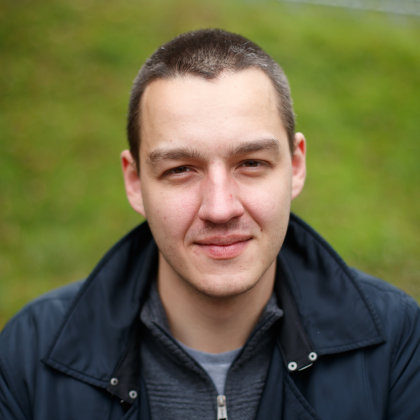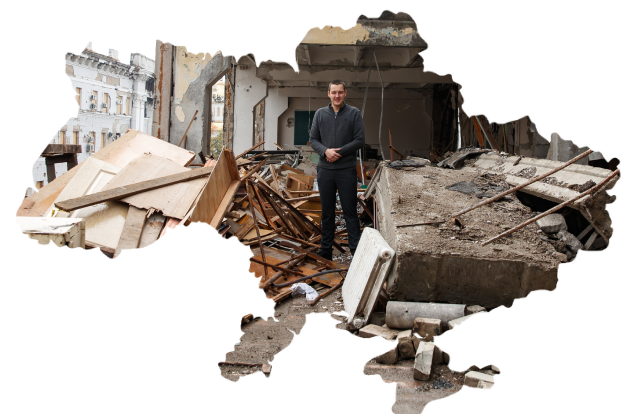Vladyslav Myrnyi
Doctor of Veterinary Medicine, Head of exotic animals treatment department of CenterVet clinic.
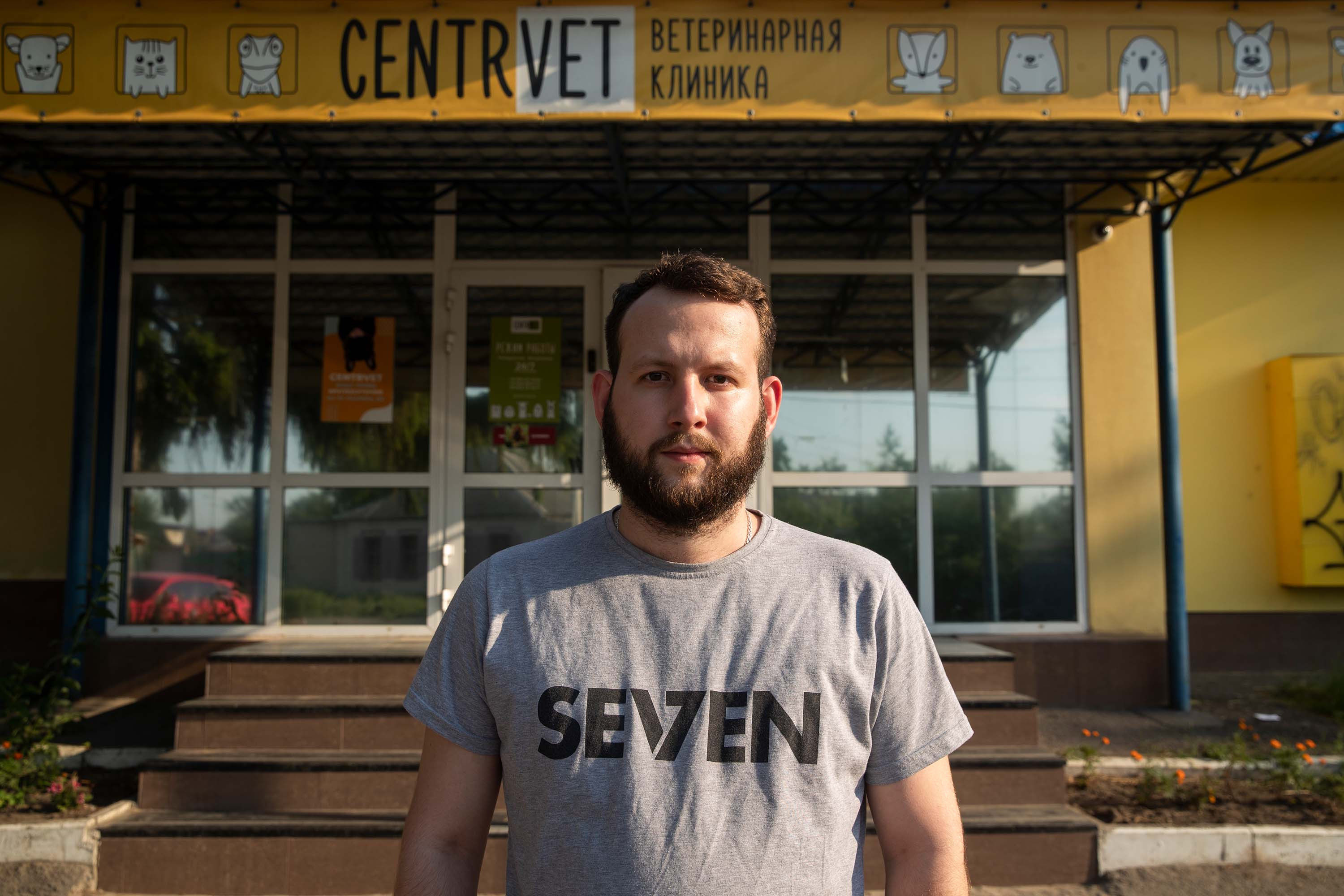
Sloviansk — Kharkiv — Horodenka — Kharkiv
I am from Sloviansk, so for me, it all started back in 2014. At that time I was in the 11th grade and first moved to Kharkiv to take the ZNO*. If it hadn't been for that, I don't think I would have gone anywhere. Everyone thought it would be over in no more than a week. Just like now, probably. And it still hasn't come to an end…
I carried 20 guinea pigs from Sloviansk to Kharkiv. There was no public transport then, the bridges were destroyed. My dad drove us to Barvinkove, and from there a shuttle bus went to Kharkiv. I took a plasma box, made shelves for the pigs and they sat there like sprats — there was no other option. Then they got out, and I had to catch them on the bus.
I knew they could die if I left the guinea pigs for three weeks or more. A stranger from Kharkiv helped. She had just come to breed guinea pigs and took all my pigs, helped to place them and sell them. Subsequently, she helped to restore the herd and she did it unselfishly and free of charge.
I moved to Kharkiv just for three weeks. I lived with my mother and younger brother, my brother was four years old at the time, and I was 16. I applied for an extra session of ZNO and stayed in Kharkiv until I passed the last subject. Then Sloviansk was freed and we returned home.
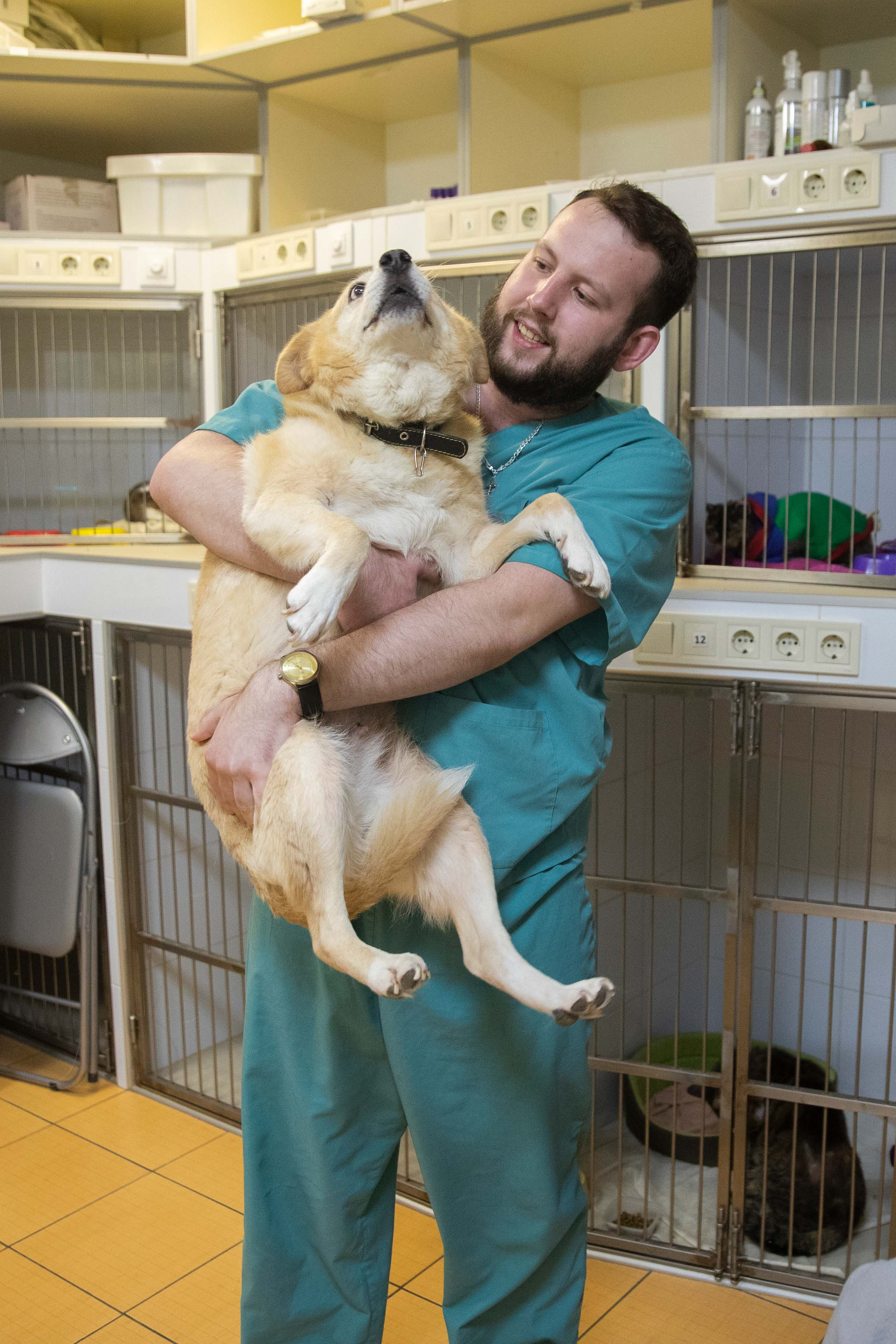
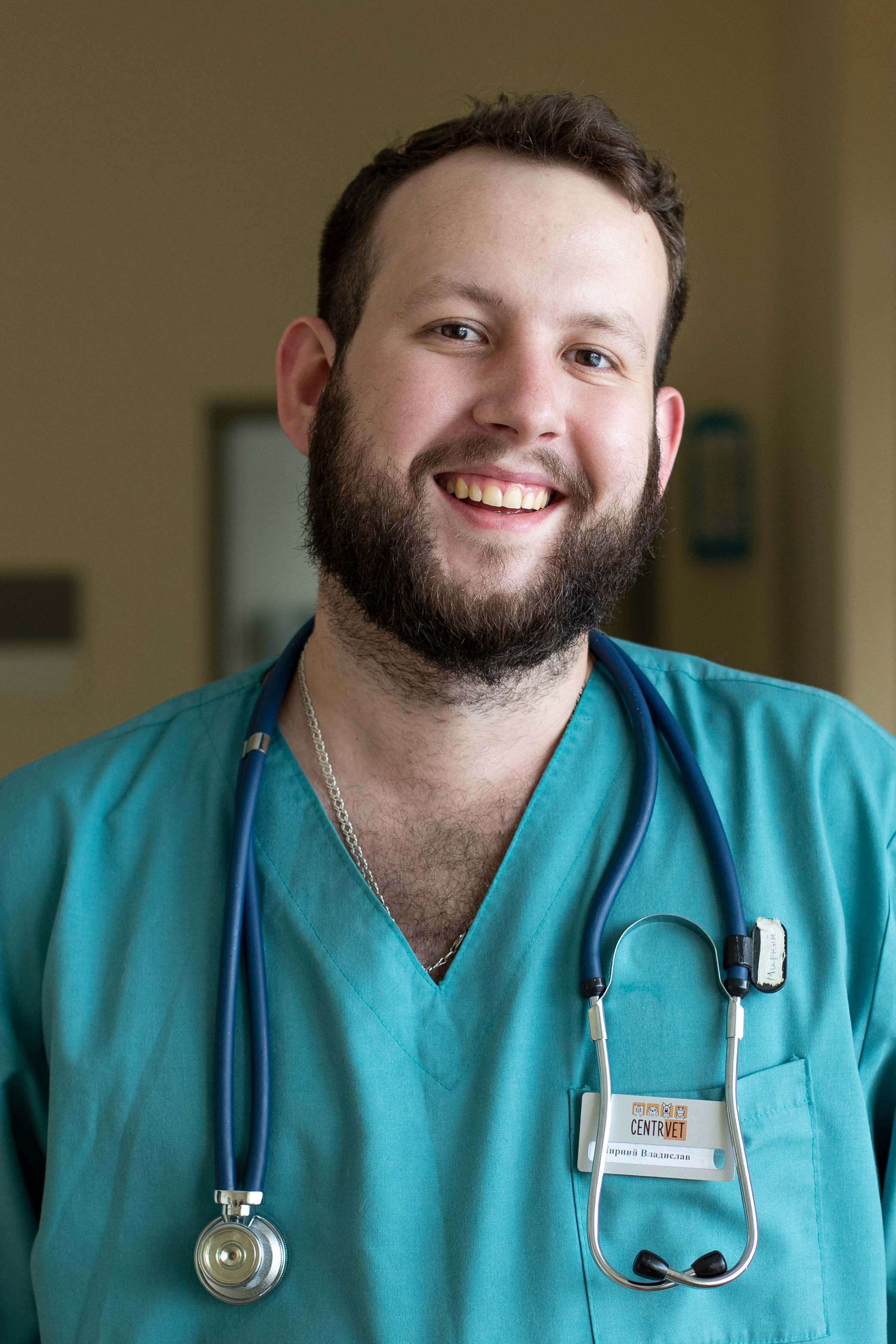
In September 2014 I entered the medical faculty of Karazin University and moved back to Kharkiv, where I have stayed for the last eight years.
On February 18 this year I flew to the Czech Republic to judge a guinea pig show. The Czechs were panic-stricken because of the possible war, and we were relaxed, believing that "nothing would happen". We spent the weekend in the Czech Republic, and on Monday we returned to Ukraine. On Tuesday I went to work, and Wednesday, February 23, was a day off. Some friends came over, we stayed up until about 2 am, discussed all the possible scenarios and went to bed peacefully.
At seven in the morning, my wife's mother called. She was crying, and we had been asleep and didn't understand what was going on. Then she said, "Oh, well, if you're asleep, then call me back." But the sleep disappeared right away — we thought maybe someone had died or something else had happened to relatives. We called her back and she said we were being bombed. We looked out the window, and there were a lot of cars, people were packing suitcases, and we had no idea what was going on.
We entered the work chat group, and everyone was writing about the war. We were supposed to have a busy working day: my wife had 14 surgeries scheduled, she is a vet, an endoscopic surgeon. I had appointments at my clinic, too. Some people in our neighbourhood heard the explosions, but we didn’t — if no one had called or written, we would have slept quietly and then gone to work.
At work they said we did not have to go, so we went to the store. People there were panicking, carrying big bags. We took a small bag and then got disappointed that we couldn't find any hookah tobacco.
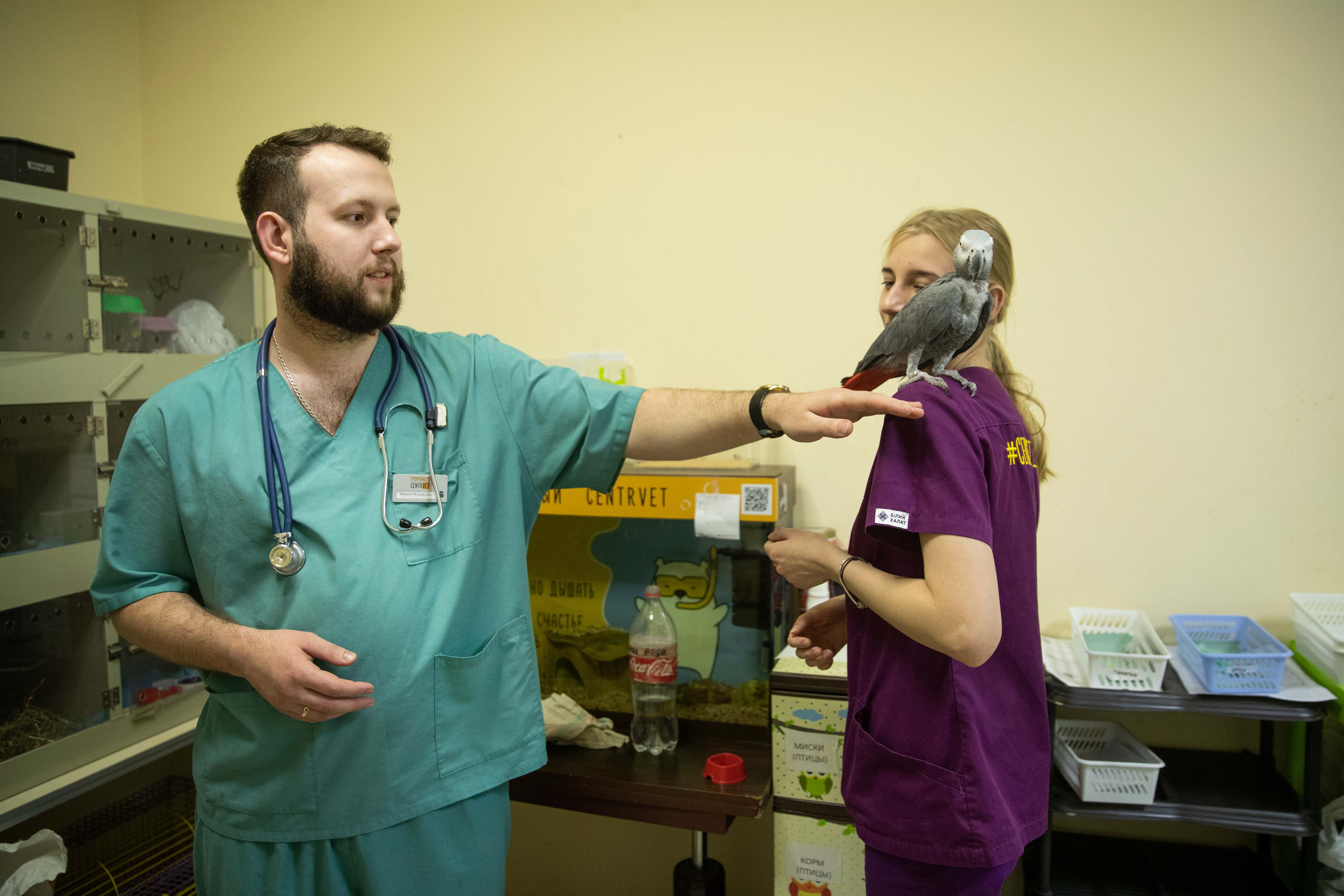
Funny, that on February 24-25 we were supposed to have our salaries, so on the 23rd we bought a blender with the last money. Because when we were in the Czech Republic — we tried chicken wings with cottage cheese sauce and it was so awesome that we wanted to make it. All the people were buying dollars and we decided to "invest" in a blender — such an epic fail.
Then we called our friends, two girls who lived on their own. They were scared. We offered them to come to our house and then decide what to do. Since lunch the explosions started more actively, I was used to it after Sloviansk, and people who had never heard that before were, of course, in panic.
We went to our veterinary clinic. There is a large basement with thick walls. We lived there for three weeks, sleeping on whatever we could find. There were 20 of us — ten employees and ten friends of friends.
The first week we were very economical with food as we didn't know if we could get it from anywhere. Breakfast, for example, consisted of three pieces of sausage per person and two pieces of bread. We all lost a lot of weight during this time.
It was hard to live in the clinic. The atmosphere was like in a dormitory, there were a lot of people, we slept on the floor... It was dangerous to go back home as there was a military unit located nearby, moreover, the windows were broken. So my wife and I decided to go to the west of the country.
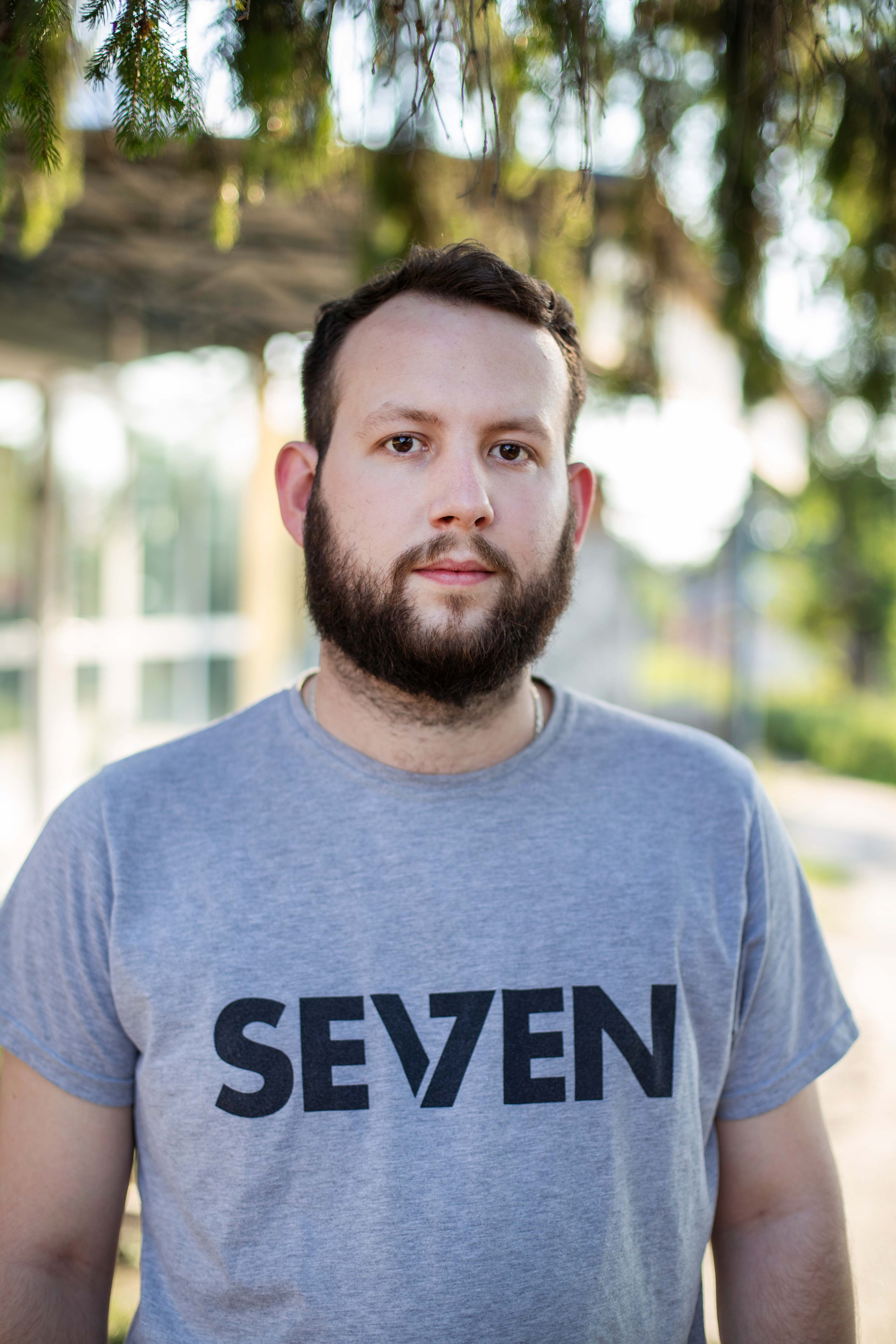
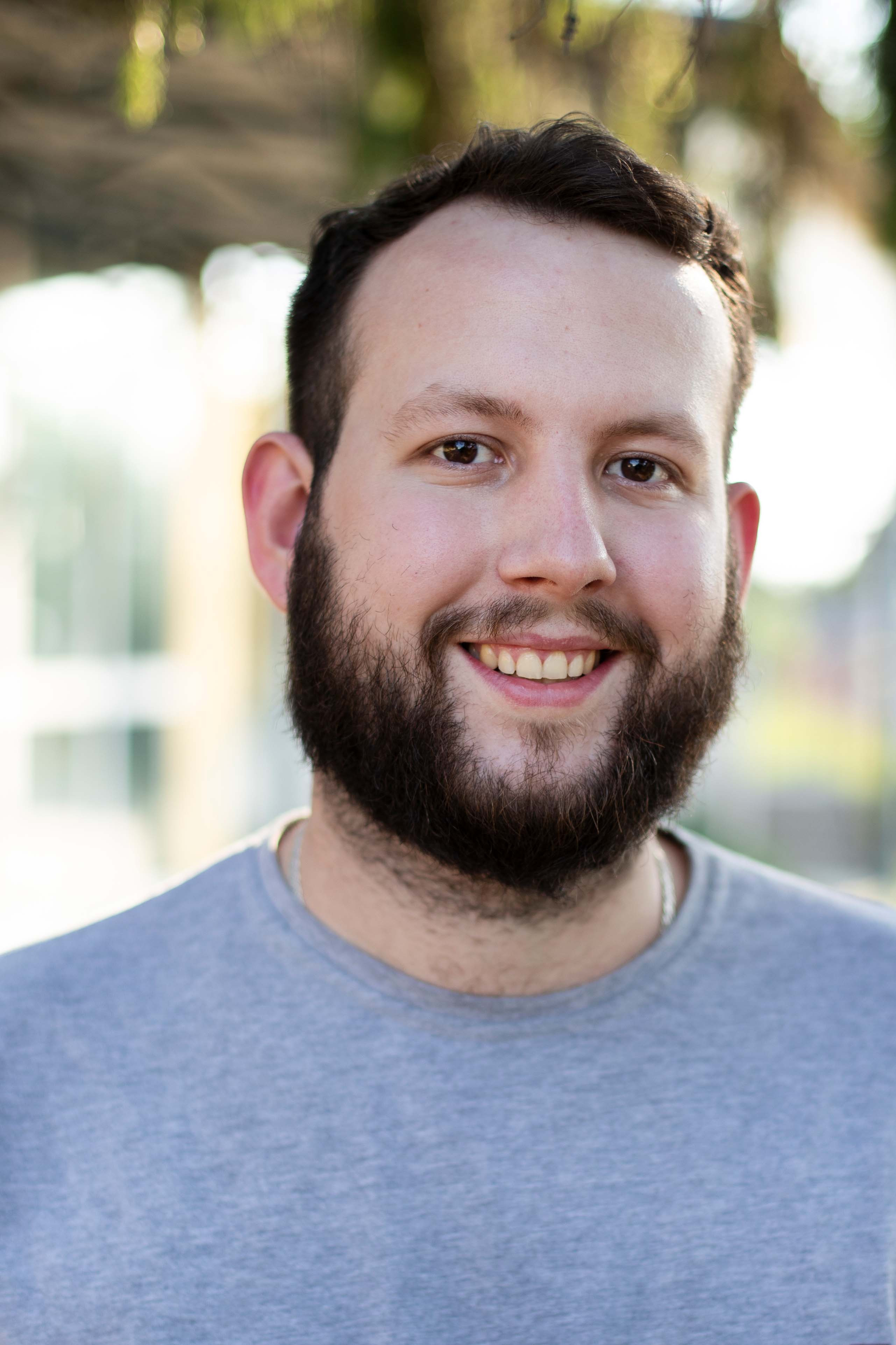
There were four of us: me, Lilya, and two friends. This time only four pigs were travelling with us. That was easy, three were going in a dog carrier. The trip took about four days because the traffic was very heavy. First, we reached Krasnohrad, spent the night there and went to Kropyvnytskyi, spent the night at a friend's place and another night in the car somewhere in the field. Eventually, we got to the town of Horodenka in the Ivano-Frankivsk region, our acquaintances gave us a free apartment there.
It looks to me as if the stories about the bad attitude in western Ukraine toward newcomers from the east are mostly throw-ins that benefit, above all, Russian propaganda. Everyone knew that we were from the east and treated us just fine. The people wherever we stayed were very cool. In Horodenka neighbours would bring us food, in Kropyvnytskyi, we got a flat tire and they repaired it for free.
The only unpleasant incident was on the way out of Kharkiv. We were stopped by the pigs (not the police officers, but the pigs, who, unfortunately, have not disappeared yet). It was during the curfew, they saw where we were coming from but still asked if we wanted to "help the national police". We told this to our colleague's father, who is now in TRO. They promised to find them and do something about them.
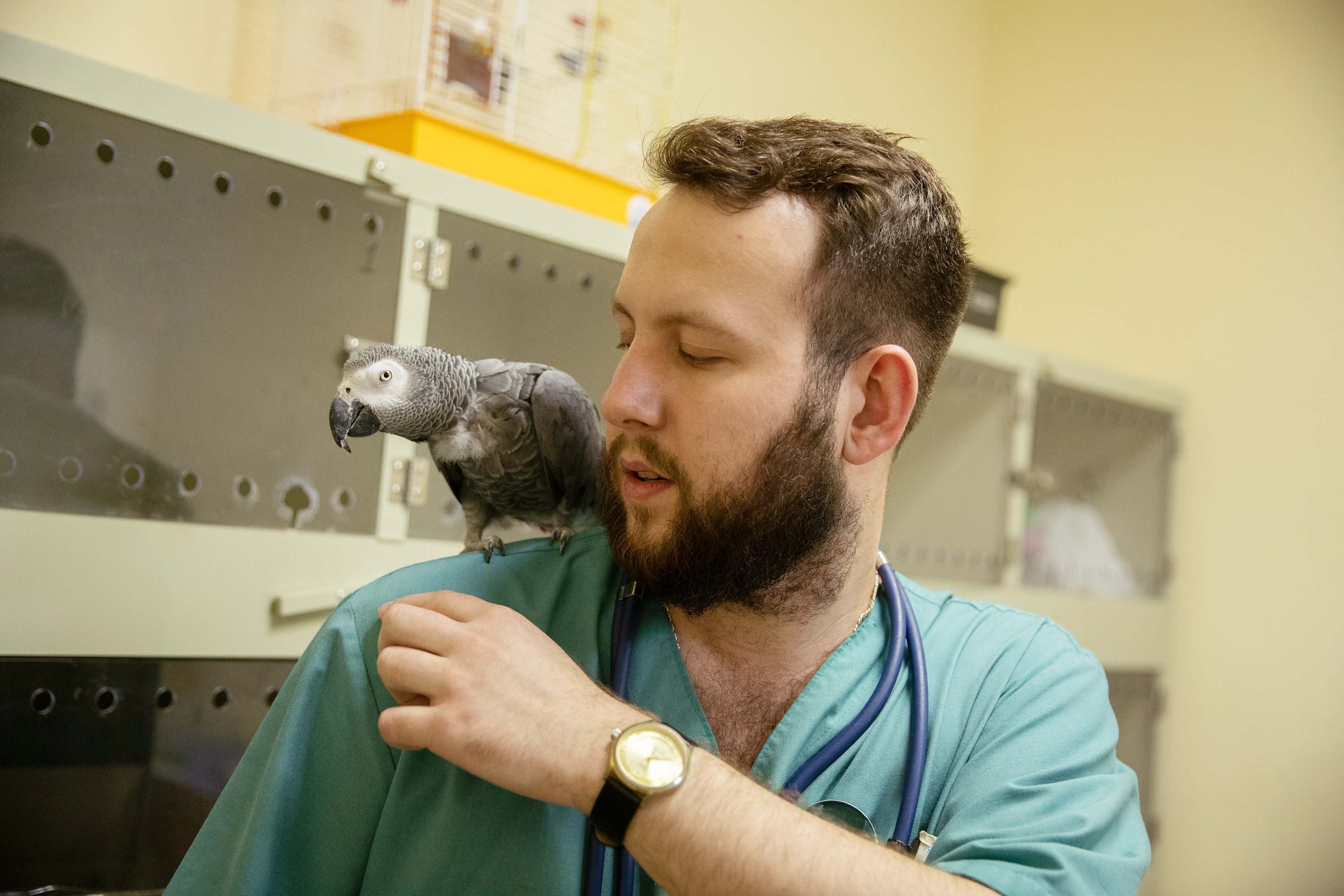
Our parents are in the occupied territory in Luhansk Oblast, and in Sloviansk. We needed either to settle in Ivano-Frankivsk or go back and live our lives. The feeling of home, friends, a slightly different mentality — all these were reasons to go back.
My wife found a job in Ivano-Frankivsk, and I was also offered one, but at the end of May, we decided to go back to Kharkiv. We've been here two months already. It's very nice to be at home. In one room, which had been renovated, the window shattered, but in the bedroom and kitchen, only the windowpanes were blown out - we managed to put them back.
We continue to work in Kharkiv. The workload has not decreased. While many people with pets have left, a lot of clinics have closed, so the amount of work is about the same as before.
There is no fear as such. If you're not in an occupation, yeah, there are bangs but that's it. I guess you don't feel it all until it happens at your place. And it's like some kind of abyss that pulls you in — you're already waiting for the explosions. It may sound strange, but when you hear explosions, you feel the adrenaline and your brain shuts down for a while.
I wouldn't have left Kharkiv at all. Had it not been for my wife and friends, I would have stayed. It is much easier for me to bear all this than for those for whom it is the first time. It is even easier in the sense that my house was not taken away from me: Sloviansk was freed, and from time to time I could go there to visit my parents. But those who left everything in Donetsk or Luhansk in 2014 and had to move, now have to leave everything again. It's a real fucked up experience. And it's morally draining.
*External Independent Evaluation (ZNO) are examinations for university admission in Ukraine.
Recorded by Misha Pravilniy
Translated by Katsiaryna Khinevich
Photographed by Oleksandr Osipov
